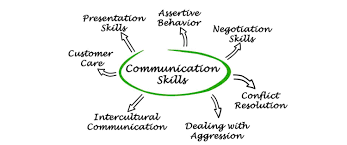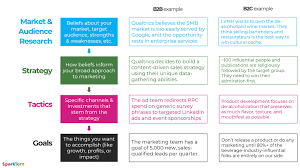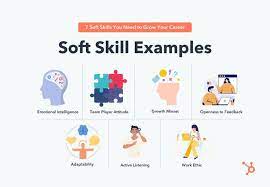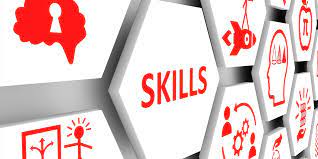Unlocking Success: The Role of a Digital PR Freelancer in Today’s Digital Landscape
The Rise of Digital PR Freelancers
In today’s fast-paced digital world, the role of Public Relations (PR) has evolved significantly. With the increasing importance of online presence and reputation management, businesses are turning to digital PR freelancers for their expertise and flexibility.
Digital PR freelancers are independent professionals who specialise in leveraging digital platforms to enhance a brand’s visibility, reputation, and engagement with its target audience. They offer a range of services, including media relations, content creation, social media management, influencer partnerships, and online reputation management.
One of the key benefits of hiring a digital PR freelancer is their agility and adaptability. They can quickly pivot strategies based on the latest trends and insights, ensuring that your brand remains relevant in a constantly changing digital landscape.
Furthermore, digital PR freelancers often bring a fresh perspective and innovative ideas to the table. Their diverse experience working with various clients across different industries allows them to offer creative solutions that can set your brand apart from the competition.
Working with a digital PR freelancer also provides cost-effective solutions for businesses looking to enhance their online presence. Freelancers typically offer flexible pricing structures and tailored packages that suit the specific needs and budget constraints of each client.
Overall, the rise of digital PR freelancers reflects the growing demand for specialised expertise in navigating the complexities of digital communication. By harnessing the skills and insights of these independent professionals, businesses can effectively build their brand presence online and connect with their target audience in meaningful ways.
Five Advantages of Hiring a Digital PR Freelancer: Expertise, Flexibility, and Innovation
- Specialised expertise in digital communication strategies
- Flexibility to adapt quickly to changing trends and market demands
- Cost-effective solutions tailored to specific business needs and budgets
- Fresh perspectives and innovative ideas from diverse industry experience
- Ability to enhance online brand presence and engagement with target audience
Challenges of Hiring a Digital PR Freelancer: Understanding the Limitations
- Lack of consistent availability due to working with multiple clients
- Limited resources compared to larger PR agencies
- Potential for conflicts of interest when working with competitors
- Less accountability and oversight compared to in-house PR teams
- Challenges in maintaining long-term relationships with clients
- Risk of miscommunication or misunderstandings without face-to-face interactions
- Difficulty in scaling services for larger projects or campaigns
Specialised expertise in digital communication strategies
Digital PR freelancers offer a distinct advantage with their specialised expertise in digital communication strategies. Their in-depth knowledge and experience in leveraging digital platforms enable them to craft tailored strategies that effectively engage target audiences, enhance brand visibility, and drive meaningful results. By staying abreast of the latest trends and best practices in the digital landscape, these freelancers can provide valuable insights and innovative approaches that help businesses stand out in a crowded online environment. This specialised expertise ensures that businesses receive strategic guidance and impactful communication solutions that align with their goals and maximise their online presence.
Flexibility to adapt quickly to changing trends and market demands
Digital PR freelancers offer a valuable advantage with their flexibility to swiftly adapt to evolving trends and market demands. In today’s dynamic digital landscape, staying ahead of the curve is crucial for maintaining a strong online presence. Freelancers can quickly adjust strategies, messaging, and tactics to align with the latest trends, ensuring that their clients remain relevant and competitive in the fast-paced digital world. This agility allows businesses to capitalise on emerging opportunities and navigate market shifts effectively, showcasing the invaluable expertise and responsiveness of digital PR freelancers.
Cost-effective solutions tailored to specific business needs and budgets
Digital PR freelancers offer a significant advantage through their cost-effective solutions that are customised to meet the unique needs and budgets of businesses. By providing tailored services, these freelancers ensure that clients receive maximum value for their investment, without unnecessary expenses. This approach allows businesses to access high-quality digital PR expertise at a fraction of the cost of traditional agencies, making it a practical and efficient choice for companies looking to enhance their online presence and reputation without breaking the bank.
Fresh perspectives and innovative ideas from diverse industry experience
Digital PR freelancers bring a valuable pro to the table with their ability to offer fresh perspectives and innovative ideas stemming from their diverse industry experience. Having worked with a range of clients across different sectors, these freelancers possess a wealth of knowledge that allows them to approach challenges creatively and offer unique solutions tailored to each client’s specific needs. This diverse background enables digital PR freelancers to bring new insights and strategies to the table, helping businesses stand out in the competitive digital landscape and effectively engage with their target audience.
Ability to enhance online brand presence and engagement with target audience
Digital PR freelancers offer a valuable pro with their ability to enhance online brand presence and engagement with the target audience. By leveraging their expertise in digital platforms and communication strategies, freelancers can craft compelling narratives, create engaging content, and implement targeted campaigns that resonate with the audience. This proactive approach not only boosts brand visibility but also fosters meaningful interactions that strengthen the brand’s connection with its target demographic, ultimately driving brand loyalty and long-term success in the digital realm.
Lack of consistent availability due to working with multiple clients
One significant drawback of working with digital PR freelancers is the potential lack of consistent availability. Since freelancers often juggle multiple clients to sustain their business, there may be challenges in ensuring prompt and uninterrupted communication or support. The demands of managing various projects simultaneously can lead to delays in responses, meetings, or deliverables, impacting the overall efficiency and effectiveness of the collaboration. This lack of consistent availability may hinder seamless coordination and timely execution of digital PR strategies, potentially affecting the quality of service and results for clients.
Limited resources compared to larger PR agencies
One significant drawback of working with digital PR freelancers is their limited resources in comparison to larger PR agencies. Due to their independent nature, freelancers may have constraints in terms of manpower, technology, and access to extensive networks. This limitation can potentially impact the scale and speed at which projects are executed, as well as the breadth of services that can be offered. Clients may find themselves facing challenges when requiring comprehensive and multifaceted PR campaigns that demand a wide range of resources and expertise beyond what a freelancer can provide independently.
Potential for conflicts of interest when working with competitors
One significant con of hiring a digital PR freelancer is the potential for conflicts of interest when working with competitors. Since freelancers often work with multiple clients simultaneously, there is a risk that sensitive information or strategies shared by one client could inadvertently benefit a competitor. This can lead to concerns about confidentiality and the impartiality of the freelancer’s services, potentially undermining trust and creating ethical dilemmas for both the freelancer and their clients. Businesses must carefully consider this risk and establish clear boundaries and agreements to mitigate any potential conflicts of interest when engaging digital PR freelancers.
Less accountability and oversight compared to in-house PR teams
One significant drawback of working with digital PR freelancers is the potential for less accountability and oversight compared to in-house PR teams. Freelancers operate independently, often remotely, which can lead to challenges in monitoring their work progress and ensuring adherence to established communication strategies. Without direct supervision and regular feedback mechanisms that are typically present in an in-house team setting, there may be a lack of transparency and accountability in the execution of PR campaigns by freelancers. This can result in inconsistencies, delays, or misalignment with the overall brand objectives, highlighting the importance of establishing clear communication channels and expectations when engaging with digital PR freelancers.
Challenges in maintaining long-term relationships with clients
One significant challenge faced by digital PR freelancers is maintaining long-term relationships with clients. Due to the nature of freelance work, freelancers may work with multiple clients simultaneously, making it challenging to dedicate consistent time and attention to each client. Building trust and rapport over time can be difficult when freelancers have to juggle various projects and deadlines. Additionally, as clients’ needs and priorities evolve, freelancers must continuously adapt their strategies to meet changing requirements, which can strain long-term client relationships. Effective communication and proactive engagement are crucial in overcoming this challenge and fostering lasting partnerships with clients in the dynamic field of digital PR freelancing.
Risk of miscommunication or misunderstandings without face-to-face interactions
One significant con of working with digital PR freelancers is the risk of miscommunication or misunderstandings that can arise without the benefit of face-to-face interactions. In a virtual setting, nuances in tone, body language, and facial expressions may be lost, potentially leading to misinterpretations of messages or instructions. This lack of direct communication can hinder the collaborative process and result in delays, errors, or misaligned expectations between the freelancer and the client. Clear and effective communication becomes even more crucial when working remotely to ensure that both parties are on the same page and working towards shared goals.
Difficulty in scaling services for larger projects or campaigns
One notable challenge when working with digital PR freelancers is the difficulty in scaling services for larger projects or campaigns. Freelancers may have limited capacity and resources compared to larger agencies, making it challenging to meet the demands of extensive or complex campaigns. This limitation can lead to potential delays, quality issues, or the need to engage multiple freelancers, which may impact consistency and coordination across different aspects of the project. Businesses seeking to undertake substantial PR initiatives may find it challenging to scale up effectively when relying solely on individual freelancers.











